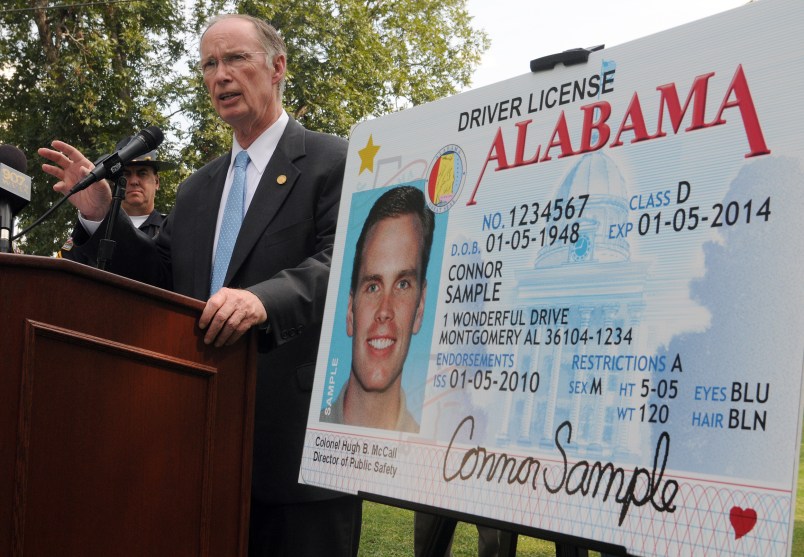MONTGOMERY, Ala. (AP) — Federal officials will investigate whether Alabama violated civil rights law with closures and service reductions at rural driver’s license offices including many in counties with heavily minority populations, the U.S. Department of Transportation announced Wednesday.
“Driver License Offices offer essential services to the American people, including providing thousands in Alabama with a method of identification. It is critical that these services be free of discrimination, and serve the people of the state fairly and equally,” U.S. Transportation Secretary Anthony Foxx said in a statement.
A section of the Civil Rights Act of 1964 prohibits discrimination in programs that receive federal funds. Foxx said the federal agency wants to make clear that compliance, “is not optional and that we will work to make sure all of its components are enforced.”
In October, Alabama shuttered 31 part-time offices where state examiners gave driving tests once or twice per week. The decision, which state officials blamed on a tight budget, left 28 of Alabama’s 67 counties without a license office, including eight of the state’s 11 majority-black counties. Of the 28 counties, 11 have populations that are more than 40 percent African-American.
U.S Rep. Terri Sewell, the lone Democrat and African-American member of Alabama’s congressional delegation asked the U.S. Department of Justice to investigate. She cited concerns about the closures in a state where a valid state-issued photo identification is required at the polls in order to vote.
After a backlash, Alabama agreed to reopen the offices, but just for one day per month, beginning in November.
Alabama Gov. Robert Bentley said his office was informed of the investigation Tuesday. The governor said politicians were attempting to “politicize” an Alabama budget issue because of a political agenda.
“This USDOT investigation is nothing more than a weak attempt to embarrass the people of Alabama and exploit our state in the name of a political agenda,” Bentley said.
“I am confident that the USDOT investigation will find no basis for the claims of discrimination. It is time for the Obama Administration and aspiring national politicians to listen to facts, stop wasting taxpayers’ dollars and put the political agendas away,” Bentley said.
Bentley’s administration announced the closures in September— after an unsuccessful effort to raise taxes — saying the offices were being shuttered to save travel costs and shift staff to the busier main license offices. Travel to the rural offices cost the Alabama Law Enforcement Agency about $100,000 per year, according to the Alabama Law Enforcement Agency.
The rural offices issued anywhere from a few dozen to a few hundred licenses each year. The 31 locations in 2014 collectively issued 5,000 learners permits and 3,149 driver’s licenses, and gave 10,587 permit exams, according to numbers from ALEA.
The closures did not affect license renewals since those are handled by county workers.
The decision to close the offices came under heavy criticism, particularly from Democrats. Democratic presidential candidate Hillary Clinton criticized the closures during a stop in Alabama.
Meanwhile, a civil rights group filed a federal lawsuit last week challenging Alabama’s photo voter ID law itself. The lawsuit calls it an infringement on voting rights and an attempt to suppress the influence of black and Hispanic voters.
Copyright 2015 The Associated Press. All rights reserved. This material may not be published, broadcast, rewritten or redistributed.







I think that if Bentley’s tenure was worth a shit , they wouldn’t have such a “tight” budget —